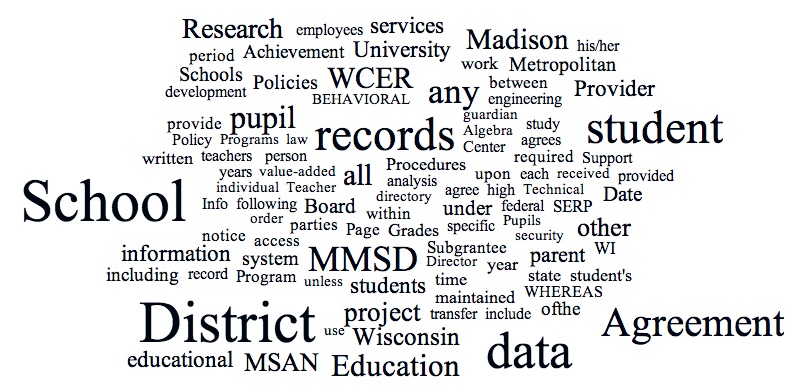“I’m an academic,” says Slekar, a Pittsburgh-area native whose mother and grandmother were elementary school teachers and who was a classroom teacher himself before earning a Ph.D. in curriculum from University of Maryland.
“I understand scholarship, I understand evidence, I understand the role of higher education in society,” he says. “When initiatives come through, if we have solid evidence that something is not a good idea, it’s really my job to come out and say that.”
Michael Apple, an internationally recognized education theorist and professor at University of Wisconsin-Madison agrees. In the face of conservative state legislators’ push to privatize public education, “it is part of my civic responsibility to say what is happening,” says Apple.
“In a society that sees corporations as having all the rights of people, by and large education is a private good, not a public good,” he says. “I need to defend the very idea of public schools.”
Both Apple and Julie Underwood, dean of the School of Education at UW-Madison, share Slekar’s concern over the systematic privatization of education and recognize a role for scholars in the public debate about it.
…
A wide-ranging, animated, sometimes loud conversation with Slekar includes familiar controversies hotly debated around the country and in the Wisconsin Capitol, like high-stakes testing, vouchers and Common Core standards. The evidence, Slekar says flatly, shows that none of it will work to improve student learning.
The reform initiatives are instead part of a corporate takeover of public education masquerading as reform that will harm low-income and minority students before spreading to the suburbs, says Slekar, in what he calls the civil rights issue of our time.
A 30-year attack has worked to erode the legitimacy of the public education system. And teachers are taking much of the blame for the stark findings of the data now pulled from classrooms, he says.
“We’re absolutely horrible at educating poor minority kids,” says Slekar. “We absolutely know that.”
But neither the so-called reformers, nor many more casual observers, want to talk about the real reason for the disparities in achievement, Slekar says, which is poverty.
“That’s not an excuse, it’s a diagnosis,” he says, quoting John Kuhn, a firebrand Texas superintendent and activist who, at a 2011 rally, suggested that instead of performance-based salaries for teachers, the nation institute merit pay for members of Congress.
Local Education school academics have long had interactions with the Madison School District. Former Superintendent Art Rainwater works in the UW-Madison School of Education.

Further, this 122 page pdf (3.9mb) includes contracts (not sure if it is complete) between the UW-Madison School of Education and the Madison School District between 2004 and 2008. Has this relationship improved achievement?
Related: Deja Vu? Education Experts to Review the Madison School District and When A Stands for Average: Students at the UW-Madison School of Education Receive Sky-High Grades. How Smart is That?